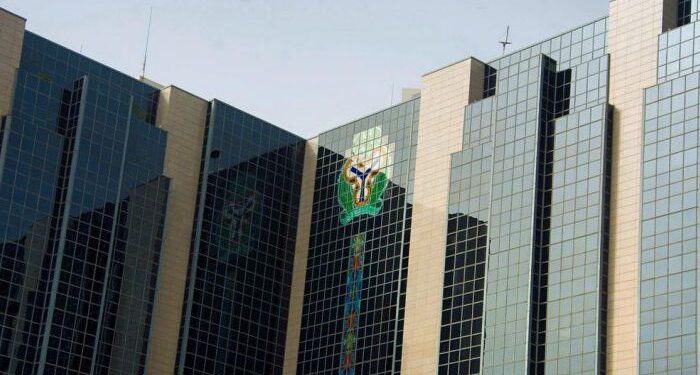The Central Bank of Nigeria (CBN) has issued a new directive mandating all deposit money banks and other financial institutions to refund customers for failed Automated Teller Machine (ATM) and electronic transactions within 48 hours. The apex bank said the move is part of its renewed commitment to strengthening consumer protection, promoting transparency, and improving public confidence in the financial system.
In a statement released on Thursday, the CBN reiterated that the two-day refund policy applies to all failed transactions conducted through ATMs, Point of Sale (PoS) terminals, and online banking platforms. The directive follows rising complaints from customers about delayed or unprocessed reversals for failed electronic payments.

According to the statement signed by Mrs. Hakama Sidi Ali, Acting Director of the CBN’s Corporate Communications Department, banks and payment service providers must ensure strict compliance with the refund policy or face regulatory sanctions. The apex bank emphasised that it will monitor transaction reversals through its consumer protection department to ensure financial institutions meet the stipulated timeframe.
“The Central Bank of Nigeria has directed all deposit money banks, mobile money operators, and payment service providers to comply strictly with the 48-hour refund policy for failed electronic transactions,” the statement read. “Any bank that fails to comply will face severe penalties, including fines, restrictions, or suspension from certain electronic payment channels.”
Mrs. Sidi Ali explained that the directive aims to ensure fairness and accountability in Nigeria’s digital payment ecosystem, which has witnessed massive growth in recent years. She noted that customer trust in electronic transactions is crucial to achieving the CBN’s cashless policy and advancing the country’s digital economy agenda.
Recent data from the Nigeria Inter-Bank Settlement System (NIBSS) shows that the value of electronic payment transactions in Nigeria surged by over 45 per cent in the first eight months of 2025, reaching N630 trillion compared to N435 trillion in the same period last year. However, this growth has been accompanied by a spike in failed transactions, largely attributed to network disruptions, system downtimes, and poor customer redress mechanisms.
In response to these challenges, the CBN said it would strengthen collaboration with the Nigeria Electronic Fraud Forum (NeFF) and other industry stakeholders to enhance system efficiency and consumer satisfaction. The apex bank added that it would also introduce a transaction monitoring portal that allows customers to track complaint status and refund progress directly through a centralised platform.
“The era of long delays in transaction reversals is over,” the CBN spokesperson said. “We expect all banks to upgrade their systems, improve customer service, and prioritise dispute resolution. Consumers deserve prompt service delivery and accountability.”
Financial analysts have described the CBN’s directive as a timely intervention to restore trust in the banking sector. According to Dr. Olamide Okafor, a fintech consultant, the 48-hour refund window will significantly improve consumer experience and strengthen Nigeria’s transition to a more efficient, digital-driven economy.
“Many Nigerians have lost confidence in electronic channels due to delayed refunds and poor communication from banks,” Dr. Okafor noted. “This policy sends a strong signal that the CBN is taking customer protection seriously. If properly enforced, it could enhance financial inclusion and drive adoption of digital payments.”
Similarly, Mr. Ayo Adediran, a financial analyst at GTI Capital, said the new measure will also reduce interbank disputes and customer litigation. “Banks will now have a stronger incentive to invest in transaction monitoring tools and resolve complaints faster,” he added.
The apex bank, however, warned customers against filing false claims or attempting to exploit the system. It said such actions would be treated as financial misconduct and could attract sanctions, including blacklisting or prosecution under relevant financial laws.
Meanwhile, some commercial banks have already begun communicating the new refund policy to customers through emails and SMS alerts. Several lenders have also assured that they are upgrading their systems to align with the CBN directive.
A customer service officer at one of the Tier-1 banks in Lagos, who spoke on condition of anonymity, confirmed that internal circulars had been issued to staff regarding the 48-hour refund mandate. “We have been instructed to fast-track all reversal complaints and provide updates to customers in real time. The CBN is monitoring compliance very closely,” the official said.
Consumer rights advocates have also welcomed the directive but urged the CBN to ensure proper enforcement. Mrs. Funke Adebayo, a representative of the Consumer Awareness Forum (CAF), said: “We appreciate the CBN’s effort to protect bank customers, but enforcement remains key. The regulator must hold defaulting banks accountable and publish compliance reports periodically.”
She further called for stronger collaboration between the CBN and telecom operators to reduce transaction failures caused by poor network connectivity, particularly in rural areas where digital banking is expanding rapidly.
As Nigeria continues to embrace a digital financial landscape, experts believe that timely enforcement of the CBN’s refund directive will boost confidence in the country’s e-payment systems and reduce the growing distrust between banks and customers.
The directive aligns with the CBN’s broader financial inclusion strategy, which seeks to ensure that at least 95 per cent of Nigerian adults have access to formal financial services by 2026.
In the coming months, the success of this policy will largely depend on how effectively banks comply with the 48-hour refund mandate and how consistently the CBN enforces disciplinary actions against defaulters. For millions of Nigerians who rely on electronic payments daily, this initiative could mark a significant step toward a more transparent, efficient, and customer-centric banking system.
Support InfoStride News' Credible Journalism: Only credible journalism can guarantee a fair, accountable and transparent society, including democracy and government. It involves a lot of efforts and money. We need your support. Click here to Donate
